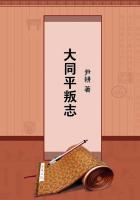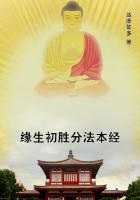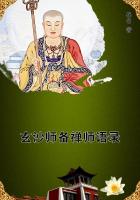Everything that is in locomotion is moved either by itself or by something else. In the case of things that are moved by themselves it is evident that the moved and the movent are together: for they contain within themselves their first movent, so that there is nothing in between. The motion of things that are moved by something else must proceed in one of four ways: for there are four kinds of locomotion caused by something other than that which is in motion, viz. pulling, pushing, carrying, and twirling. All forms of locomotion are reducible to these. Thus pushing on is a form of pushing in which that which is causing motion away from itself follows up that which it pushes and continues to push it: pushing off occurs when the movent does not follow up the thing that it has moved: throwing when the movent causes a motion away from itself more violent than the natural locomotion of the thing moved, which continues its course so long as it is controlled by the motion imparted to it. Again, pushing apart and pushing together are forms respectively of pushing off and pulling: pushing apart is pushing off, which may be a motion either away from the pusher or away from something else, while pushing together is pulling, which may be a motion towards something else as well as the puller. We may similarly classify all the varieties of these last two, e.g. packing and combing: the former is a form of pushing together, the latter a form of pushing apart. The same is true of the other processes of combination and separation (they will all be found to be forms of pushing apart or of pushing together), except such as are involved in the processes of becoming and perishing. (At same time it is evident that there is no other kind of motion but combination and separation: for they may all be apportioned to one or other of those already mentioned.) Again, inhaling is a form of pulling, exhaling a form of pushing: and the same is true of spitting and of all other motions that proceed through the body, whether secretive or assimilative, the assimilative being forms of pulling, the secretive of pushing off. All other kinds of locomotion must be similarly reduced, for they all fall under one or other of our four heads. And again, of these four, carrying and twirling are to pulling and pushing. For carrying always follows one of the other three methods, for that which is carried is in motion accidentally, because it is in or upon something that is in motion, and that which carries it is in doing so being either pulled or pushed or twirled; thus carrying belongs to all the other three kinds of motion in common. And twirling is a compound of pulling and pushing, for that which is twirling a thing must be pulling one part of the thing and pushing another part, since it impels one part away from itself and another part towards itself. If, therefore, it can be shown that that which is pushing and that which is pushing and pulling are adjacent respectively to that which is being pushed and that which is being pulled, it will be evident that in all locomotion there is nothing intermediate between moved and movent. But the former fact is clear even from the definitions of pushing and pulling, for pushing is motion to something else from oneself or from something else, and pulling is motion from something else to oneself or to something else, when the motion of that which is pulling is quicker than the motion that would separate from one another the two things that are continuous: for it is this that causes one thing to be pulled on along with the other. (It might indeed be thought that there is a form of pulling that arises in another way: that wood, e.g. pulls fire in a manner different from that described above. But it makes no difference whether that which pulls is in motion or is stationary when it is pulling: in the latter case it pulls to the place where it is, while in the former it pulls to the place where it was.) Now it is impossible to move anything either from oneself to something else or something else to oneself without being in contact with it: it is evident, therefore, that in all locomotion there is nothing intermediate between moved and movent.
Nor again is there anything intermediate between that which undergoes and that which causes alteration: this can be proved by induction: for in every case we find that the respective extremities of that which causes and that which undergoes alteration are adjacent.
For our assumption is that things that are undergoing alteration are altered in virtue of their being affected in respect of their so-called affective qualities, since that which is of a certain quality is altered in so far as it is sensible, and the characteristics in which bodies differ from one another are sensible characteristics: for every body differs from another in possessing a greater or lesser number of sensible characteristics or in possessing the same sensible characteristics in a greater or lesser degree. But the alteration of that which undergoes alteration is also caused by the above-mentioned characteristics, which are affections of some particular underlying quality. Thus we say that a thing is altered by becoming hot or sweet or thick or dry or white: and we make these assertions alike of what is inanimate and of what is animate, and further, where animate things are in question, we make them both of the parts that have no power of sense-perception and of the senses themselves. For in a way even the senses undergo alteration, since the active sense is a motion through the body in the course of which the sense is affected in a certain way. We see, then, that the animate is capable of every kind of alteration of which the inanimate is capable: but the inanimate is not capable of every kind of alteration of which the animate is capable, since it is not capable of alteration in respect of the senses: moreover the inanimate is unconscious of being affected by alteration, whereas the animate is conscious of it, though there is nothing to prevent the animate also being unconscious of it when the process of the alteration does not concern the senses. Since, then, the alteration of that which undergoes alteration is caused by sensible things, in every case of such alteration it is evident that the respective extremities of that which causes and that which undergoes alteration are adjacent.
Thus the air is continuous with that which causes the alteration, and the body that undergoes alteration is continuous with the air.
Again, the colour is continuous with the light and the light with the sight. And the same is true of hearing and smelling: for the primary movent in respect to the moved is the air. Similarly, in the case of tasting, the flavour is adjacent to the sense of taste. And it is just the same in the case of things that are inanimate and incapable of sense-perception. Thus there can be nothing intermediate between that which undergoes and that which causes alteration.
Nor, again, can there be anything intermediate between that which suffers and that which causes increase: for the part of the latter that starts the increase does so by becoming attached in such a way to the former that the whole becomes one. Again, the decrease of that which suffers decrease is caused by a part of the thing becoming detached. So that which causes increase and that which causes decrease must be continuous with that which suffers increase and that which suffers decrease respectively: and if two things are continuous with one another there can be nothing intermediate between them.
It is evident, therefore, that between the extremities of the moved and the movent that are respectively first and last in reference to the moved there is nothing intermediate.














